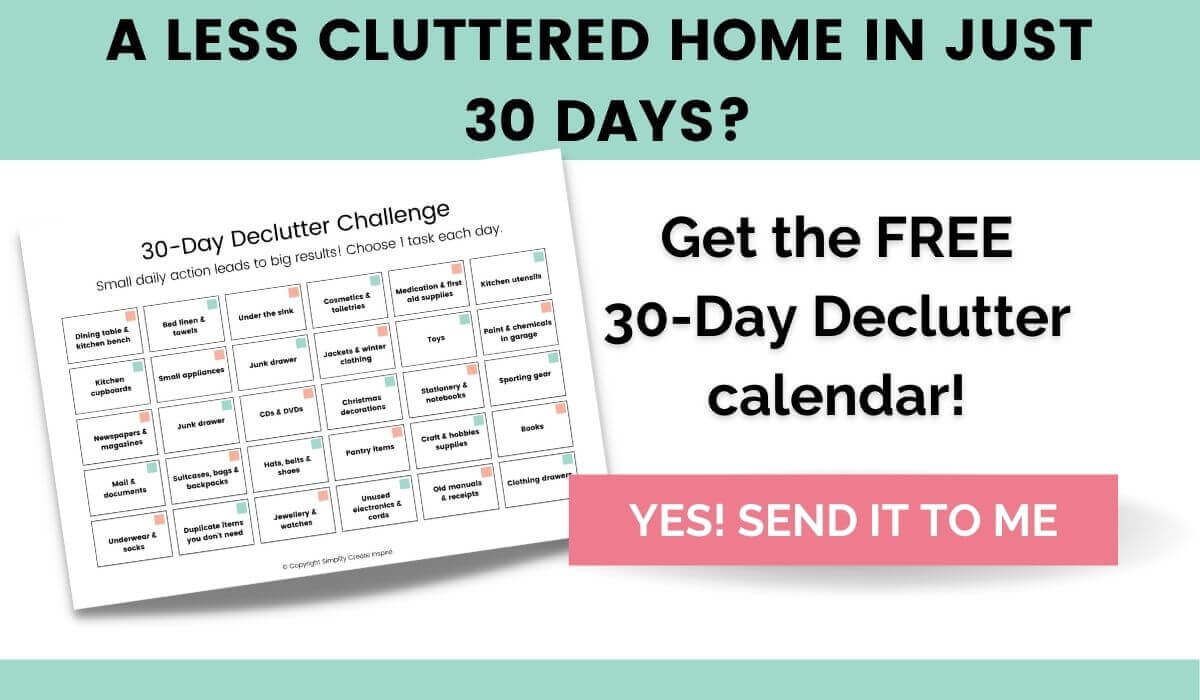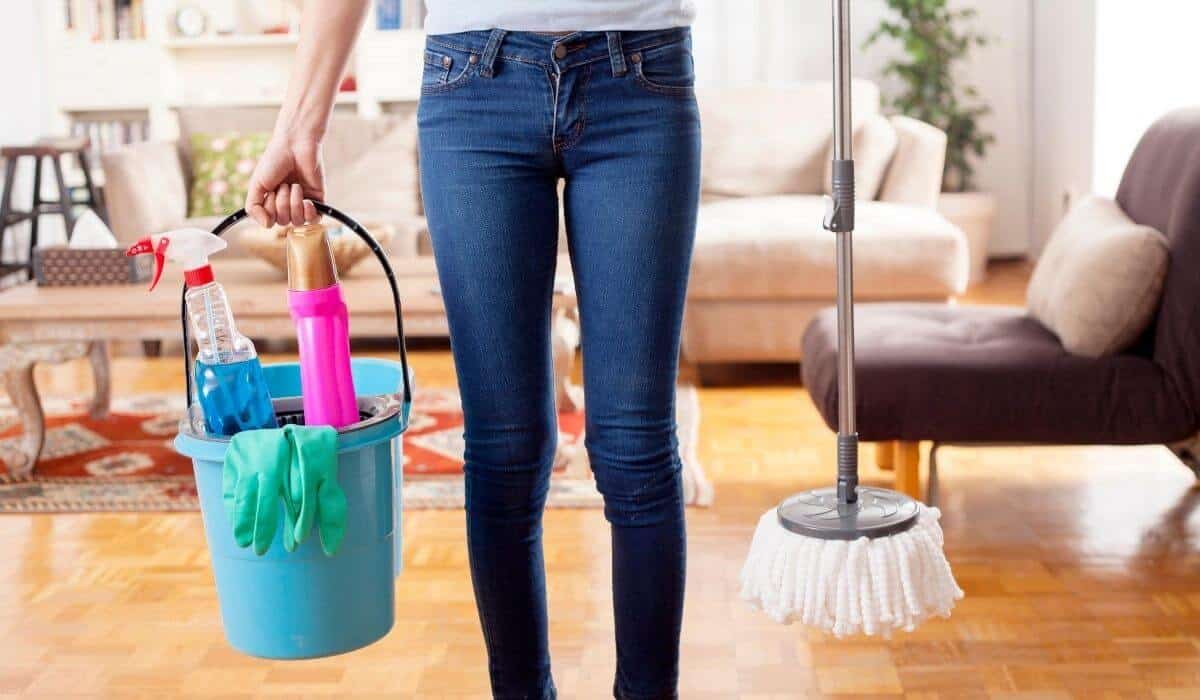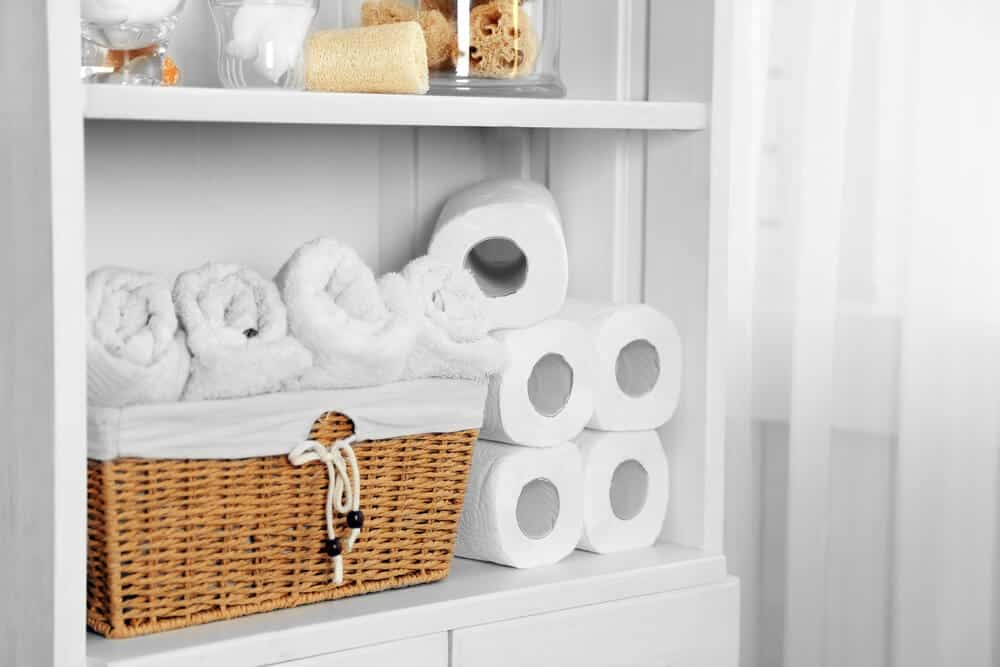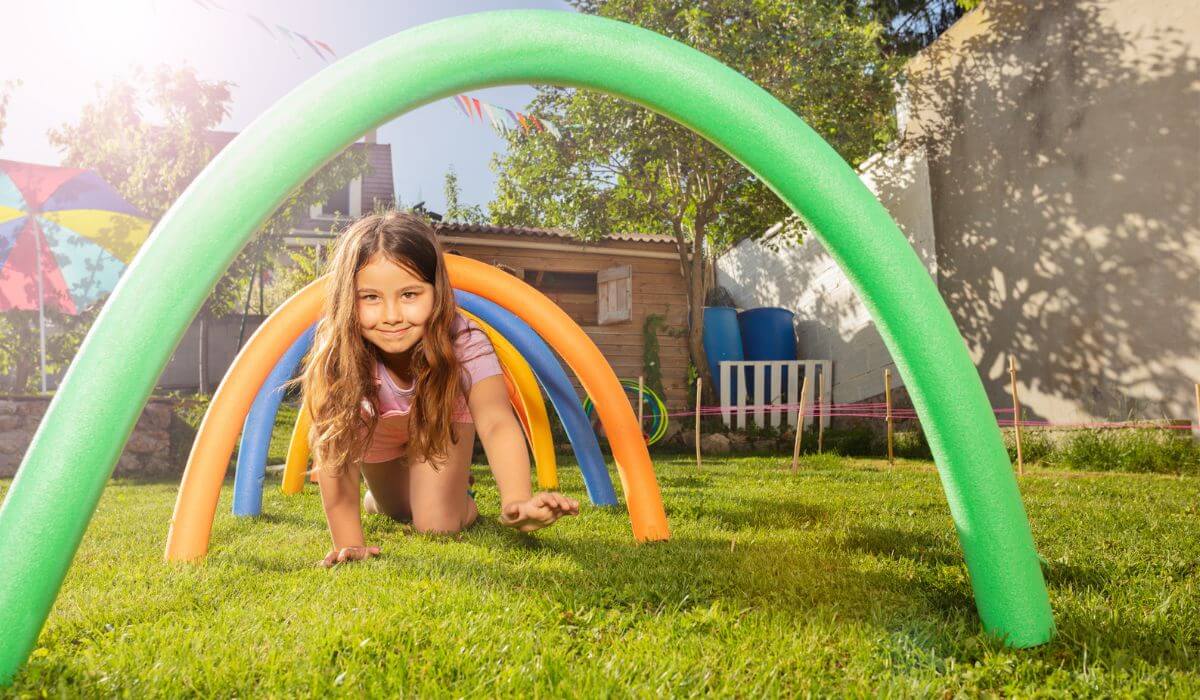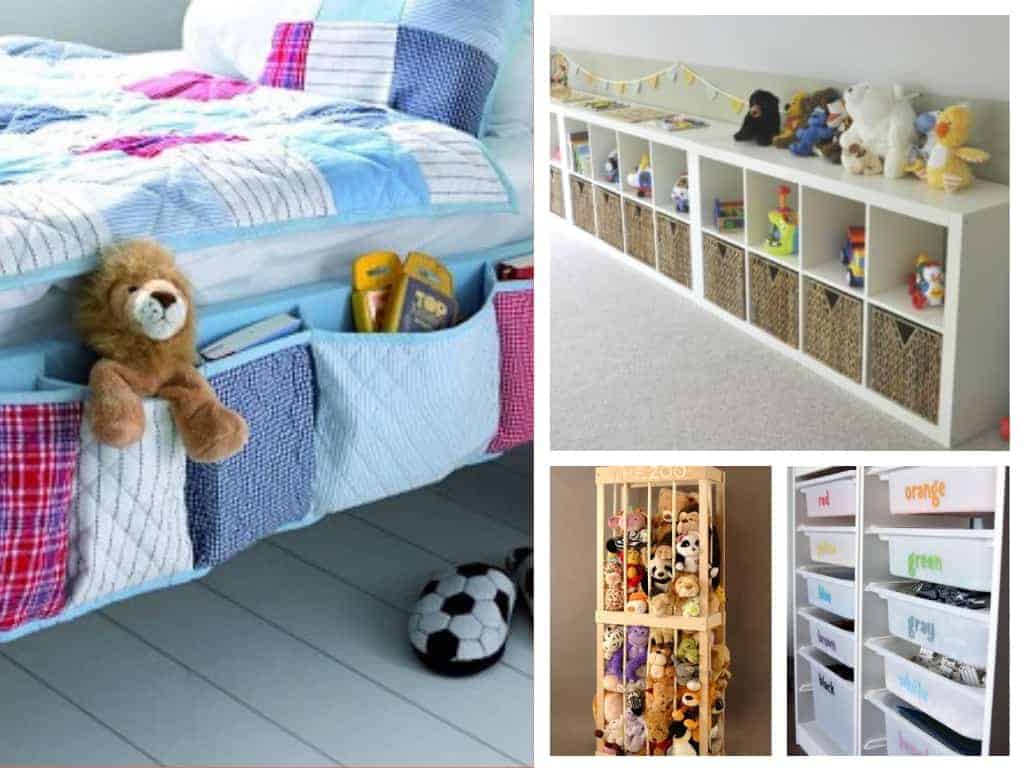14 Essential Decluttering Questions To Help You Declutter Anything
This post may contain affiliate links. Read the full disclosure
Decluttering your home can be a daunting task. It’s not always easy to figure out what to get rid of and what to keep. That’s why it’s important to ask yourself the right questions when decluttering. These important decluttering questions will help you narrow down what really matters in your life and home to help you declutter anything!
Get my free 30-day declutter challenge checklist
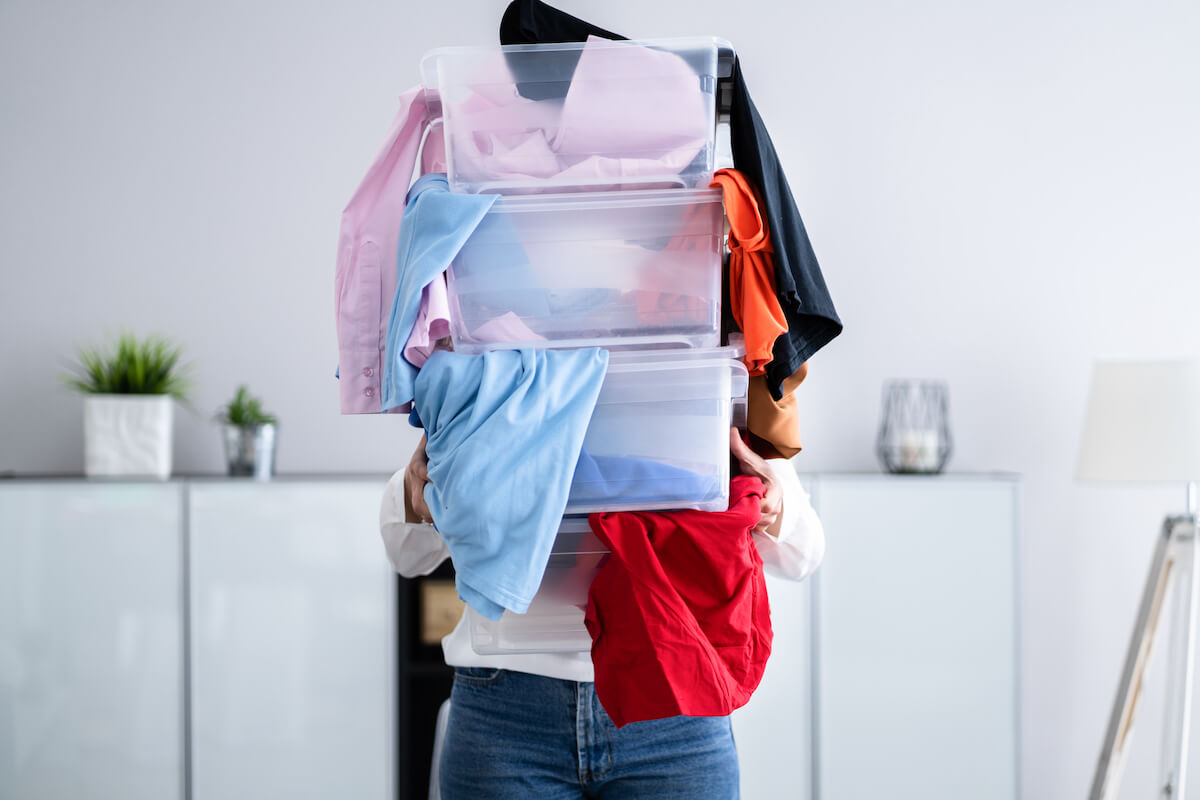
The Essential Decluttering Questions To Help You Declutter Anything
When it comes to clearing clutter from your home, some things are easy to part with. While most give us pause, wondering if we should keep it or if should we let it go. This inner turmoil is often one of the hardest parts of the decluttering process.
However, there are certain questions you can ask yourself to help you make a decision about each item. Before we get into those essential decluttering questions to ask yourself though, let us talk about the benefits of decluttering and why this process is so difficult for most of us.
Why You Should Declutter Your Home?
The benefits of decluttering are numerous! Not only will you free up much-needed space in your home, but you’ll also find that it’s easier to locate items when things are organised and in a proper place.
Additionally, a clutter-free home can be a peaceful and calming environment as opposed to one full of mess and disorganization.
Coming home to a tidy home will allow you to relax much easier than if you step through the door and instantly have to dodge piles of unnecessary stuff… or get that instant reminder that your home is overflowing.
Simplifying your life and your home helps you to focus on what is really important in your life!
What Makes Decluttering So Hard?
So if the motivation to declutter is pretty clear, then why is it so hard?
Quite simply, it’s the act of letting go.
You formed an emotional attachment to that item. Whether it was given to you as a gift by a loved one or maybe it has special sentimental value. Or if you simply can’t stand the thought of the wasted money spent on an item you no longer need, it all adds to the difficulty in letting go.
These attachments can make it difficult for many of us to part with things even when we know we don’t serve a specific purpose any longer.
If it isn’t adding value to your life, it’s time to let go and move on.
The knowledge that you spent good money on every single item in your home can also be frustrating! The entire process can be frustrating when you feel like hard-earned money is going to waste, yet a clutter-free home can have a mammoth impact on your daily life and overall mental health!
The other reason decluttering is hard is because of how overwhelming it can be to get started! Not knowing where to begin is usually the hardest step but once you have a declutter action plan, this will all get a lot easier!
Questions To Ask When Decluttering
Asking yourself the right questions when decluttering can help you make decisions about what to keep or what to toss. Here are some essential questions to ask yourself when decluttering.
We all have different tolerances and thresholds for how much clutter we can tolerate, so it is important to assess our individual situation when deciding whether to keep something sentimental or not.
These simple questions can apply to almost every item you declutter.
1. Is this item in good condition?
Before you so much as consider flexing your decluttering muscles, the first question should always consider if an item is even worth keeping at all. If it is damaged, no longer working or something with missing pieces, this particular item serves no value to anyone.
Goodbye broken junk! We have no need for you here.
2. Does this item bring me joy or happiness?
Many of us are familiar with the KonMari method of decluttering made famous by organising expert Marie Kondo in her popular book ‘The Life-Changing Magic Of Tidying Up’, and one of the things she is best known for is asking does the item spark joy. This is absolutely an important question to ask.
While her method of decluttering isn’t the best approach for everyone, this question is a good reason to keep or let go of things.
So before you ask anything else, ask yourself do you actually love this item – right now? Perhaps you’ve loved it in the past but it is no longer something that brings you the same joy or maybe you’ve settled for this item while shopping, even though it wasn’t exactly what you wanted.
The best thing about this decluttering question is that it is also really useful for when you are out shopping and being intentional with your purchases, to avoid any of those shopping regret moments that can follow.
3. Do I use this item regularly?

The next question is about whether you actually use this item. Of course, some items are decorative in nature so this question will not be relevant to those items.
There are other items we have in our home for special purposes, such as preparing certain dishes that you don’t often make, or seasonal items such as Christmas decorations or camping gear.
Think about when you last used the item and be realistic. If you’re unlikely to use it at least once a year, does it really belong in your home?
There are some exceptions to this rule, such as vacation gear, but it is still worth considering if you can hire or borrow them instead of having them take up space in your home.
4. Does this item add value to my life?
As well as asking yourself if the item brings you joy and whether you use it regularly, ask yourself if the item adds value to your life or makes your life easier in some way.
Depending on the item this could mean anything from adding aesthetic beauty to a room, making it easier for you to perform certain tasks or saving you time by having an item that does multiple jobs.
If it doesn’t add value to your life in any way and you don’t use it, then it might be time to let go of this item and move on.
A lot of us accumulate kitchen appliances and gadgets expecting to use them often and make great use of their time-saving features, only to find that they end up sitting at the back of the cupboard unused. There is no point in a time-saving kitchen gadget that we aren’t making regular use of!
5. Do I have another one of these?
Duplicate items can be one of the worst offenders when it comes to excess clutter. Sometimes we end up with more than one of a similar item, both in great condition and both serving a purpose.
But we usually only need one!
There are, of course, exceptions to this rule. For example, having 3 sets of salad servers might be perfectly reasonable for those occasions when you entertain or host the family for Christmas lunch.
But having 8 of these in your kitchen drawers is definitely excessive for the average family household!
How many wine glasses do you really need? How many mix-matched coffee mugs? Sets of bed linen or serving dishes? Black leggings?
Think carefully about your lifestyle, your current goals, and how many items you realistically need before deciding to keep multiple of the same item.
Linen is definitely one of the areas in my home that I have a tendency of getting carried away with. Every 12-18 months, I have to go through and cull the excess, since I only have a small linen closet with limited space.
The other exception is when you have a multi-purpose item that does the same thing as a single-purpose item you already own. For example, an Instant Pot or multi-cooker might eliminate the need for having a separate slow cooker or rice cooker.
6. Would I buy this today if I saw it in a store?

This is a powerful question to ask when decluttering! If you were at the shops today and you saw the exact item you owned, would you buy it (if you didn’t already have it)?
This decluttering question can help you to make decisions that are more in line with your new life and preferences, as well as help you to avoid any future shopping regrets.
Of course, it is not always possible to confidently answer this question but it can serve as a useful filter when going through your items.
You might find that the answer is ‘no’ because you no longer need that item, or that the item has since been replaced by something more versatile or with extra functions. Alternatively, the reason you wouldn’t repurchase it might be that you would spend more to get a better version of this item instead.
Home decor often falls into this category too of items that you loved at the time but now they aren’t so much in line with your current tastes and preferences.
7. Is this item something I could borrow from someone else?
For those items that we don’t often use, borrowing from family and friends can be a great way to save money, reduce clutter in our homes, and still experience the benefit of having that item when needed.
Examples might include power tools, a bread maker or camping gear. Alternatively, you could consider hiring these items instead of buying them if it is something needed for a short-term purpose.
This is especially great for items such as snow gear or a pressure cleaner, for example.
On those rare times when we entertain for parties, we ask the extended family if we can borrow items such as extra tables and chairs if needed. This means we aren’t storing heaps of extra stuff on our patio. A huge win since we don’t have a lot of garage storage space and no garden shed.
8. Would I miss this item if it was gone?
Often when we get into our decluttering cycle, we discover items we forgot we owned or actually have no idea how we came to be in possession of.
Chances are, we wouldn’t miss these items if they were gone, so they certainly aren’t worth the precious space in our homes!
This question often leads into the sentimental clutter, since we assume that we would miss anything sentimental that we own, but sometimes that isn’t the case when we actually put it to the test and put these items out of sight for a period.
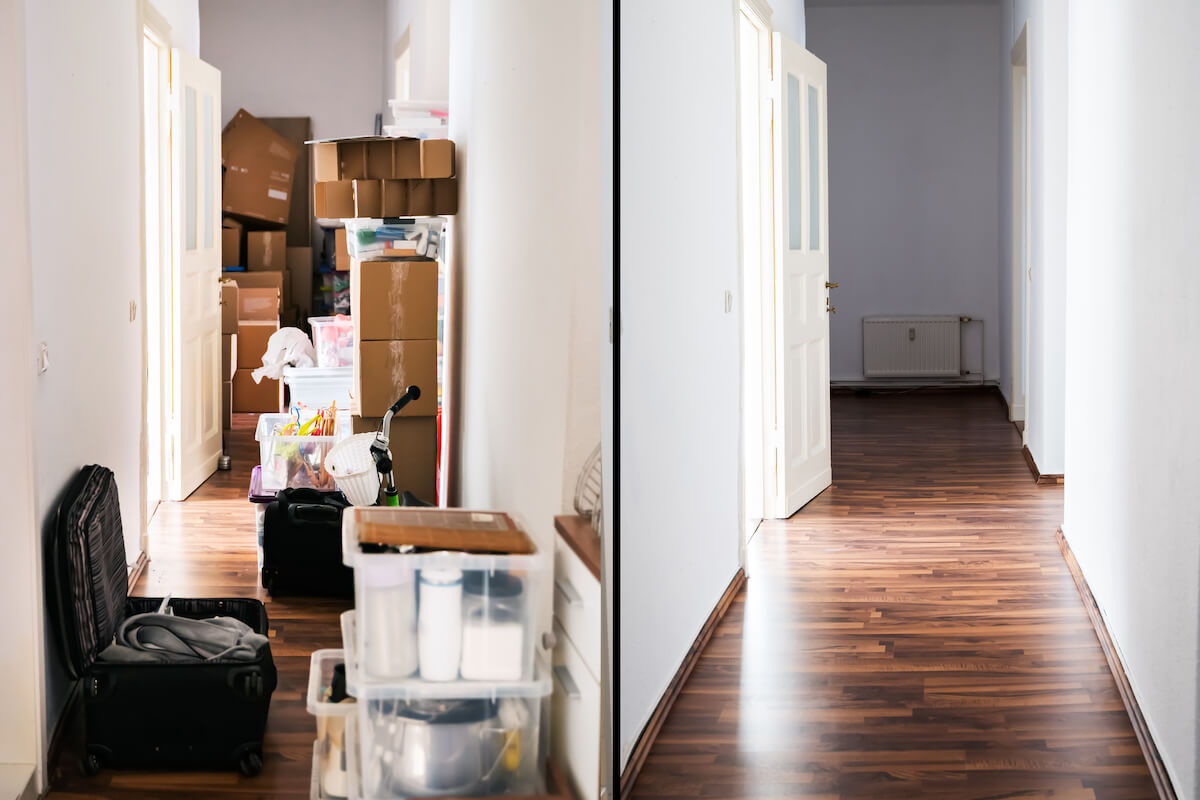
9. Does this item fit my current lifestyle?
If you have a load of exercise equipment that you know you should use… but also know you won’t, that isn’t really fitting in with your current lifestyle!
If you have a bike but prefer swimming. Or if you have a tent and camping chairs, but only ever do 5-star hotels when you travel, none of these items is serving your current lifestyle.
Pass them on to someone else who is actually in that season of life and will make great use of them.
10. Is this item worth the cost of keeping it?
Some of the items we keep cost us money in upkeep that ends up being more than it is worth to keep it.
This might be the cleaning costs of certain items we own or the regular maintenance fees, even if they aren’t being used often.
It could also be the cost of a storage unit that we are paying for to store excess items that we could just get rid of.
Dana White from A Slob Comes Clean shares one of my favourite decluttering mindset shifts in her book ‘Decluttering At The Speed Of Life’, about allowing our available space to dictate what we can keep – for example, a shelf on our bookshelf is a ‘container’ and we can only keep as many books that will fit on that shelf. If they don’t fit the container, we need to solve that clutter problem by getting rid of more books.
When our clutter is costing us a lot of money, it increases the motivation to downsize!
11. Does this item have sentimental value?
Parting with sentimental clutter is the hardest of all since these items have the strongest emotional attachment.
When considering whether to keep those items for sentimental reasons, often the emotions have us second guessing ourselves, even when our gut instinct tells us to let it go.
For this reason, when asking yourself about the sentimental value of an item, doing so after asking the other crucial questions can help us already make a decision before we let emotions influence us.
Even the items in our wardrobe can bring on that strong feeling of sentimentality when reflecting on moments we wore an item.
Ultimately, if the item no longer serves a purpose in your life (even a sentimental one), then you may be better off without it and should make the decision to let it go.
If answering yes to this question, your instinct might be to keep the item, regardless of how you answered the previous decluttering questions. That’s why these next few additional questions can help with the final decision-making process.
12. Is there someone else who would enjoy this item more?
If you are holding onto a sentimental item because you feel obligated or because it was given to you by a person who is important to you, consider if there is someone else who could benefit more from it, and who will also appreciate the nostalgic value.
Maybe a family member would like to have this item for their own home, or perhaps you know of someone who could use it in the same way it was originally intended.
Giving this item away can be incredibly rewarding and allow its sentimentality to live on with another family.
13. Am I keeping this item for the right reasons?
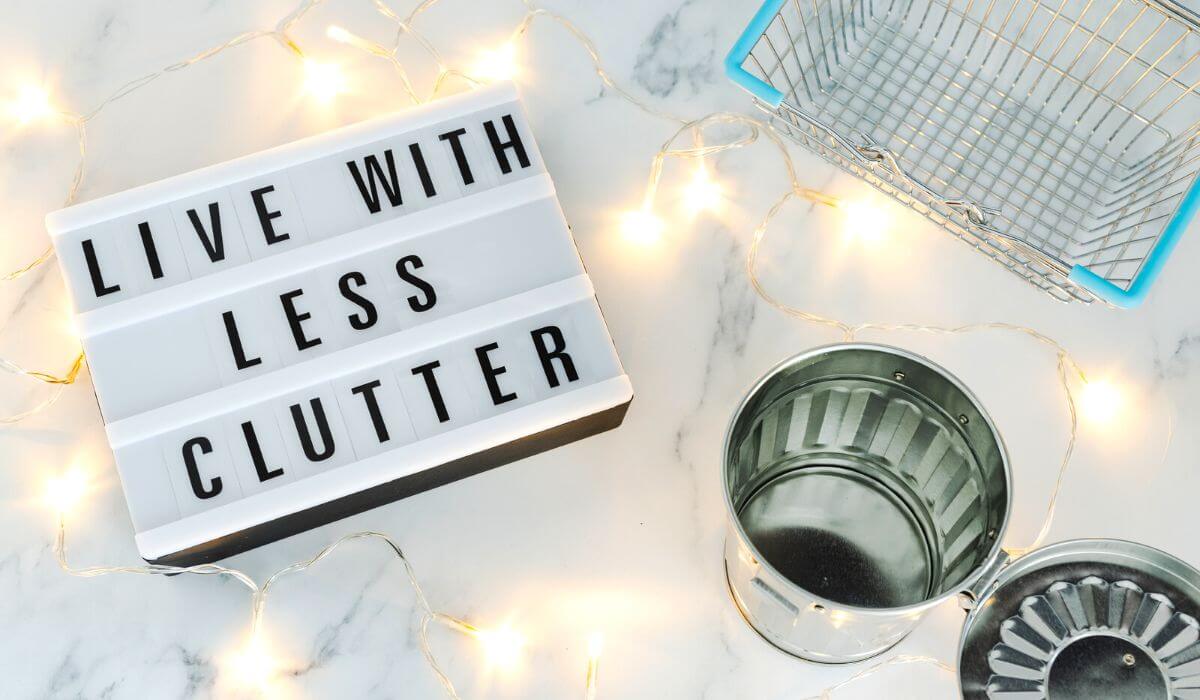
It’s a sad thing but not uncommon for us to hold onto sentimental items out of guilt or obligation, rather than because we actually truly love the item.
It may have been left to you by a person who has passed or another family member decluttered their home and decided to ‘gift’ you their unwanted items, and you feel like you can’t then do the same.
This isn’t true! Your life, home and possessions should all be a reflection of things that bring you joy and make you feel good. Not a bunch of stuff that causes negative feelings!
And you most certainly don’t need to keep that ugly yellow sweater in your drawer just because your sister gave it to you for your 28th birthday! See ya later, alligator!
14. Am I able to store this item effectively?
Finally, you should consider if the item in question can be stored and preserved appropriately so it doesn’t deteriorate over time.
If the item is something that needs special storage requirements such as an heirloom quilt or a fragile ceramic piece, then you need to determine if you have room for proper storage.
If not, then it may be a good idea to pass the item on to someone who has more space and the facilities to store it properly – so that its sentimental value can live on for generations to come.
Alternatively, you might need to look at different ways to preserve the memories of your sentimental items such as scanning old printed photographs into a digital format or converting old VHS family movies into CD or Bluray format. This can consolidate the amount of space you need and make sure none of those memories are lost!
By asking yourself these questions not only will you get clearer about what matters
Tips To Make The Decluttering Process Easier
When you are ready to start decluttering, there are a few things that will make the whole process easy, alongside using these helpful questions to make decluttering decisions about your items.
Firstly, make sure you have enough time set aside to properly go through each item and consider its value. Even if it takes a bit longer than you anticipated – that’s ok!
You don’t have to declutter your entire house in a single day!
In fact, the easy way is to do a little bit each day or each week and continue this habit on a regular basis, even after you have ‘finished’ your decluttering project.
Secondly, when you are ready to part with items, have a plan for what you will do with your unwanted items. Throw away, donate, give away or sell.
And get it out of your house as quickly as possible.
This means trash needs to go in the trash can, donations need to be dropped off ASAP and if you plan to sell any unwanted items, list them for sale quickly or set a date for your garage sale even before you start decluttering. This will ensure those items don’t end up staying in your home!
We are never really finished decluttering – it is best seen as a lifelong lifestyle change towards owning less stuff and living more intentionally!
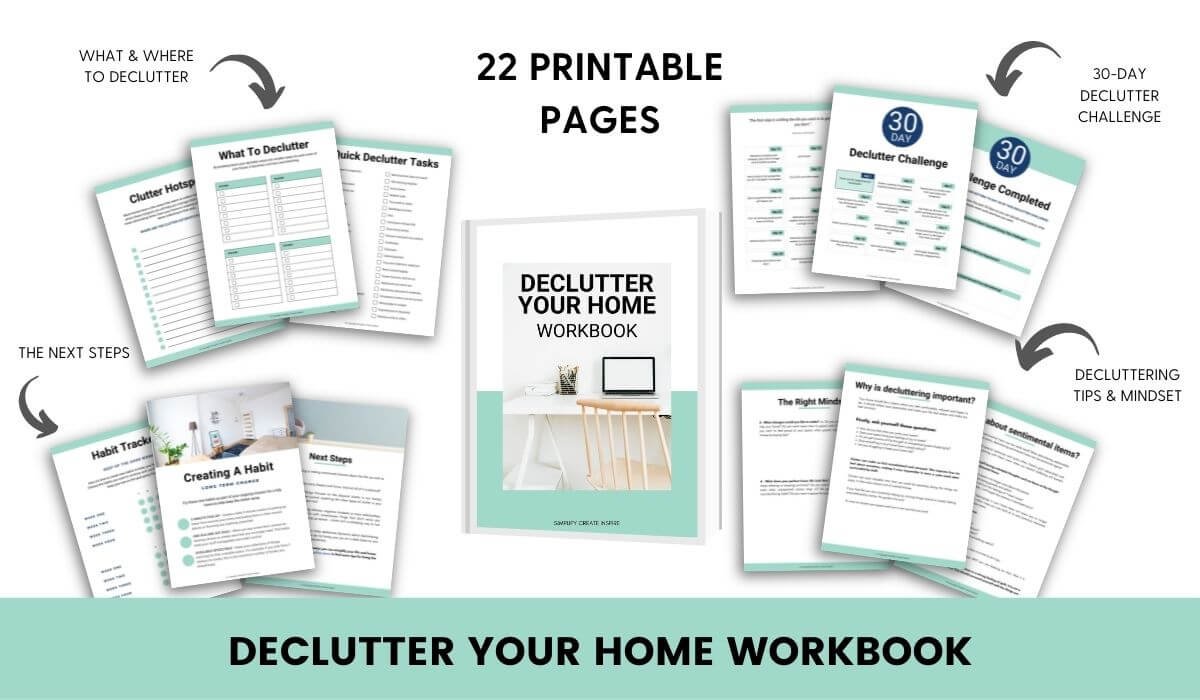
By going through the process of asking all these powerful decluttering questions, you can more easily narrow down your decisions and bring more clarity to your goals for simplifying and organising your home. This will help you keep only what is essential, giving you a sense of freedom in knowing that each item has its own purpose or sentimental value.
When you are done purging the unnecessary items, you will feel a sense of relief and accomplishment for having taken control of your space and decluttering it to reflect what is most meaningful to you.
For more cleaning & decluttering tips:
- How to start decluttering when you feel overwhelmed
- How to declutter toys
- 30-day declutter challenge calendar
- 10-minute decluttering tasks and quick wins
- How decluttering can save you money
- The 1 box decluttering method
- How to declutter your garage
- How to create your own home management binder
- Outdoor toy storage ideas
- Toy storage ideas for kids
- Things you can throw away right away
- How to declutter your kitchen
- How to declutter your bedroom
- How to declutter your bathroom
- Books about decluttering
- How to organise paperwork
- Cleaning hacks to save time
- How to declutter your living room


